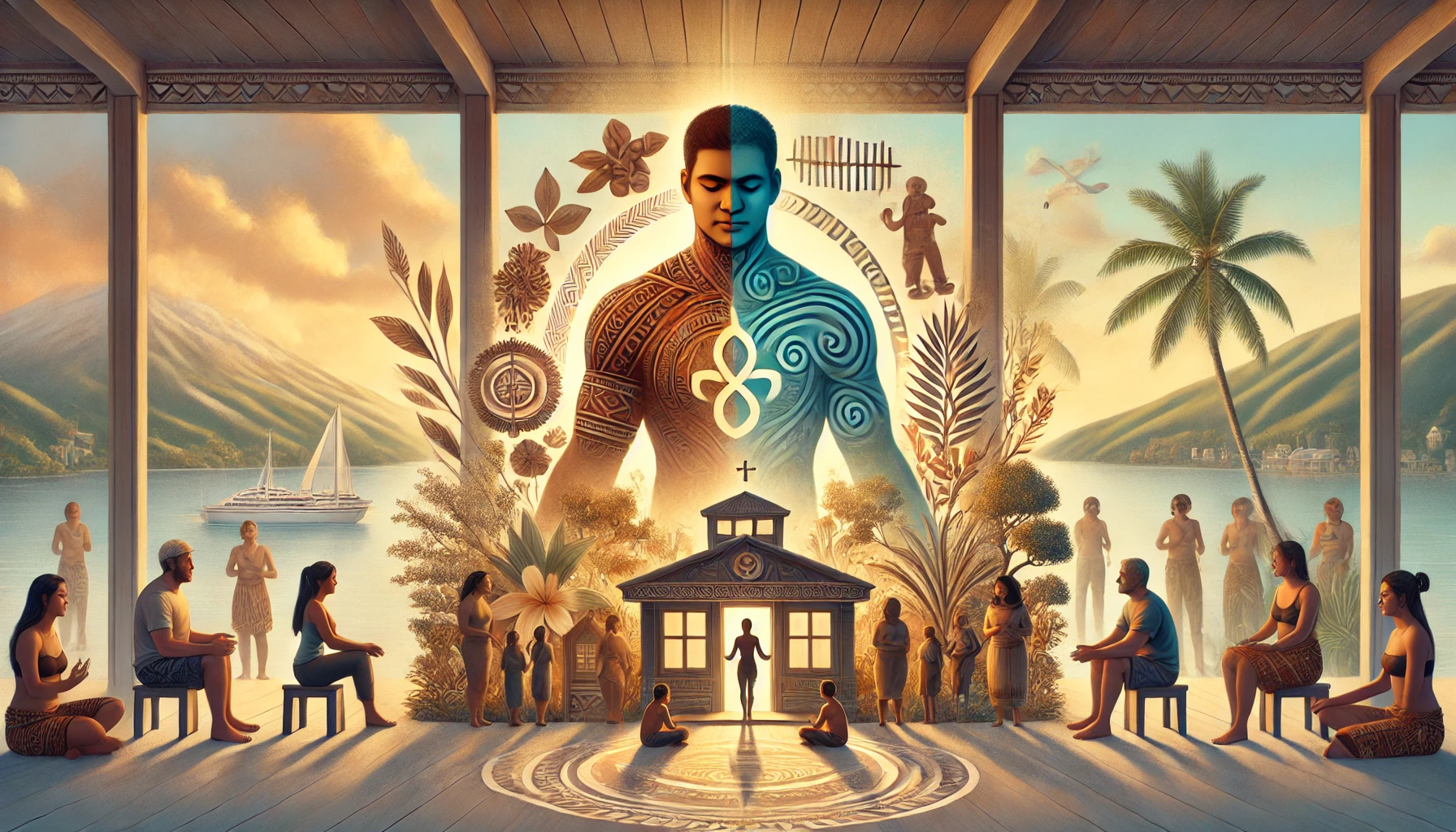
Evaluating Alternative Lifestyles as Cultural Narratives
The following is a paper I wrote for one of my college classes:
Cultural narratives are deeply embedded stories that shape how individuals and communities understand their lives, identities, and the world around them. These narratives reflect a society’s values, often dictating what is seen as “normal” or “acceptable” (Saner, 2020). While some narratives celebrate individuality and personal success, others prioritize communal achievements and the harmony of the collective. This essay explores how alternative lifestyles, such as the Fa’afafine in Samoa, challenge or align with cultural narratives. In doing so, it demonstrates that cultural norms can either promote or inhibit the acceptance of these lifestyles, depending on whether a society leans toward individualism or collectivism.
Culture plays a significant role in shaping life stories. In the West, particularly in American society, there is a common admiration for redemptive life stories where the hero overcomes obstacles through personal effort. Movies and literature often depict characters like Rocky Balboa or Chris Gardner (The Pursuit of Happyness) who triumph against adversity by “pulling themselves up by their bootstraps.” These stories are emblematic of the American Dream, promoting a cultural narrative centered on individualism, optimism, and upward mobility (Shuttlesworth, 2016).
However, this narrative doesn’t universally apply. Not all life stories conclude with redemption or success, and in many cultures, the focus is not solely on individual achievement. In collectivist societies, the hero’s journey may be seen as the result of communal effort rather than individual striving. The group plays a key role in shaping an individual’s success or failure, and therefore, collective pride or shame is shared among the community. These cultural narratives can offer a broader understanding of human achievement, one that goes beyond personal effort and includes societal contributions (Saner, 2020).
The Fa’afafine of Samoa offers a prime example of how alternative lifestyles can be integrated into cultural norms. The Fa’afafine are individuals who are assigned male at birth but raised to embody both masculine and feminine traits (Fa’afafine Documentary, 2023). In Western cultures, this gender fluidity might be considered an “alternative lifestyle,” but in Samoa, it is an accepted part of the cultural fabric. Fa’afafine are neither seen as fully male nor fully female; they embody a third gender that plays an essential role in the community (Saner, 2020).
Unlike the rigid gender binaries often promoted in Western culture, Samoan culture acknowledges and celebrates the diversity of gender expression. The Fa’afafine are highly respected for their contributions to family life, often taking on caregiving roles or providing support to elders and children (Shuttlesworth, 2016). This communal acceptance is a reflection of Samoa’s collectivist society, where individuals are valued for their contributions to the group, rather than their adherence to traditional gender norms.
In contrast, Western societies often marginalize those who do not conform to binary gender roles. Transgender individuals and others with non-normative gender identities face systemic discrimination and social exclusion (Saner, 2020). The Fa’afafine example challenges this Western narrative by showing how gender fluidity can be normalized within a culture that prioritizes community over individuality.
The acceptance of Fa’afafine in Samoa stems from the deeply ingrained collectivist values of Samoan society. In this culture, the well-being of the group takes precedence over strict adherence to binary gender identities (Fa’afafine Documentary, 2023). This approach contrasts with individualistic cultures, where personal identity is often seen as separate from the collective. As a result, lifestyles that deviate from the norm are more likely to be accepted in collectivist societies, where diversity within the community is embraced as a strength rather than a challenge to societal norms (Saner, 2020).
The Fa’afafine community has also gained international visibility, advocating for their rights and increasing awareness of their cultural role through organizations such as the Samoa Fa’afafine Association. This organization works with government bodies and international NGOs to promote equality and provide support for the LGBTQ+ community in Samoa and the broader Pacific region (Shuttlesworth, 2016).
While collectivist societies like Samoa provide a supportive environment for alternative lifestyles, individualistic cultures often inhibit the acceptance of these lifestyles. In the West, cultural narratives that prioritize individual success and binary gender roles create barriers for those who do not conform (Saner, 2020). Alternative lifestyles, such as polyamory, same-sex relationships, or non-binary gender identities, are often marginalized because they challenge the dominant cultural narrative of heteronormativity and individualism.
However, as globalization increases, there is potential for cultural shifts that promote greater acceptance of alternative lifestyles. Exposure to different ways of living, through media, cross-cultural dialogue, and activism, has begun to change attitudes in some parts of the world (Fa’afafine Documentary, 2023). The international recognition of Fa’afafine and other gender-diverse groups highlights the possibility of a more inclusive future, where cultural narratives are more flexible and inclusive of diverse identities.
Cultural narratives play a critical role in promoting or inhibiting alternative lifestyles. In individualistic societies, personal success is often celebrated, while those who deviate from the norm are marginalized. In collectivist cultures, such as Samoa, alternative lifestyles like that of the Fa’afafine are not only accepted but respected for their contributions to the community (Saner, 2020). This comparison demonstrates that the acceptance of alternative lifestyles depends largely on a society’s underlying cultural values. As global perspectives continue to shift, there is hope for broader recognition and inclusion of diverse life stories.
References:
- Fa’afafine Documentary. (2023). Available at: YouTube.
- Shuttlesworth, K. (2016). Fa’afafine: Samoan boys raised as girls. Available at: New Zealand Herald.
- Saner, E. (2020). Samoa’s third gender: ‘It’s not about being gay, it’s about valuing femininity’. Available at: The Guardian.
